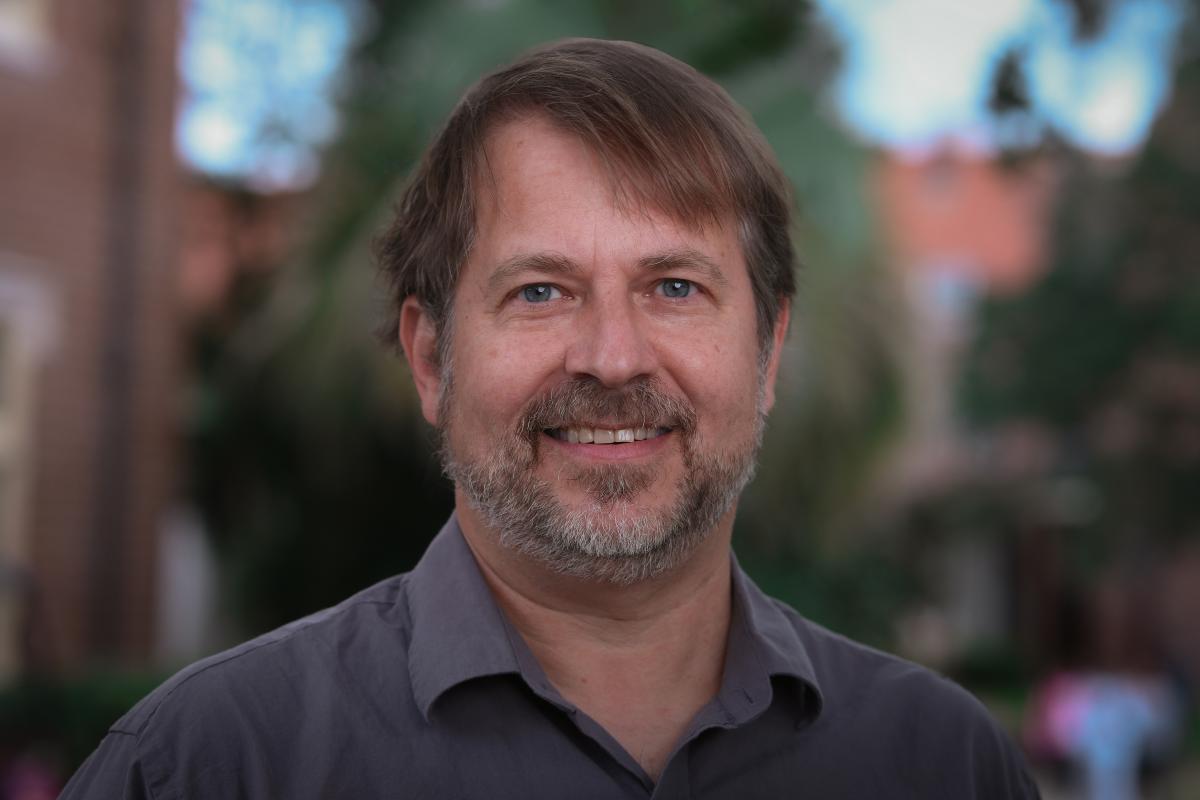Faculty Spotlight: Andrew Epstein

Andrew Epstein is a professor in the Department of English at Florida State University’s College of Arts and Sciences and currently serves as the interim chair. Epstein, who specializes in literature, won FSU’s Undergraduate and Graduate Teaching Awards in 2008 and 2014. He has three published books focusing on post-1945 literature and poetry. His second book, “Attention Equals Life,” was named a Choice Outstanding Academic Title, by Choice, the magazine of the Association of College and Research Libraries alongside being shortlisted for the Modernist Studies Association Book Prize.
Tell us a little about your background, where you’re from and what brought you to FSU.
I was born in New York City and grew up in the suburbs of northern New Jersey. I completed my undergraduate studies at Haverford College in Pennsylvania in 1992 and earned my master’s and doctoral degrees in English from Columbia University in New York City in 2000. In 2001, I was offered a tenure-track job as an assistant professor in the English department at FSU, and I’ve been at FSU ever since — marking over two decades!
What makes you passionate about post-1900 American literature?
Many of the most interesting literary works of the post-1900 era experiment with form and language in innovative ways, making them particularly inexhaustible. I’m fascinated by how literature responds to the tremendous changes associated with modernity. In my opinion, American poetry from the mid-19th century to the present is one of the most interesting, diverse, and exciting periods in the entire history of poetry.
What do you want the public to know about your areas of interest? What makes these topics important?
The study of contemporary American literature is particularly valuable because recent literature offers a unique window into the present world and our culture. Post-1900s literature is where our culture hashes out its most vexing questions: The nature of the self, politics and history, gender and sexuality, everyday life and so much more.
Tell us about your most recent book published in 2023 by Cambridge University Press, “The Cambridge Introduction to American Poetry Since 1945.”
My most recent book, “The Cambridge Introduction to American Poetry Since 1945,” is written for an expanded audience, quite different from my earlier two books. This book was written for the well-known Cambridge Introduction to Literature series, in which experts in various fields introduce the history of a literary topic. My book is designed to be an engaging, accessible, and comprehensive introduction to the rich body of American poetry that has flourished since 1945.
Tell us about your book published by Oxford University Press in 2016, “Attention Equals Life: The Pursuit of the Everyday in Contemporary Poetry and Culture.”
My second book, “Attention Equals Life,” argues that a potent hunger for everyday life exploded in the post-1945 period as a reaction to unsettling transformations during this period. This book demonstrates that poetry is an important cultural form and a mode of resistance to a culture suffering from an acute crisis of attention.
I was pleased when my book was named a Choice Outstanding Academic Title by Choice and shortlisted for the Modernist Studies Association Book Prize because it indicated that my book appeals to a broad audience of academics.
Tell us about your book published by Oxford University Press in 2006, “Beautiful Enemies: Friendship and Postwar American Poetry.”
My first book argues that an obsession with the pleasures and problems of friendship erupted in the new American poetry that emerged after World War II. By focusing on significant postmodernist American poets, such as Frank O’Hara and John Ashbery, “Beautiful Enemies: Friendship and Postwar American Poetry,” argues that many American poets represent friendship as an exhilarating, maddening contradiction.
Elaborate on your experience creating the blog Locus Solus: The New York School of Poets. What inspired you to take on this role?
In 2013, I created a new website devoted to the New York School of Poets poetry movement, which focuses on this postmodernist group of experimental poets and their literary works. I wanted to provide a place where readers could find news and commentary related to this movement’s history and legacy. Over the past decade, I’ve written over 350 different blog posts for Locus Solus: The New York School of Poets, covering a wide variety of topics. I’m pleased that the website found a wide audience and is frequently cited, creating a much wider audience than possible with traditional scholarly publications.
What did receiving the University Graduate Teaching Award in 2008 and FSU’s University Undergraduate Teaching Award in 2014 mean to you?
The two teaching awards that I’ve won at FSU are among the most gratifying recognitions I’ve received throughout my career. I see the act of teaching as central to my work as a literary scholar, writer and academic. I’m particularly pleased to have been awarded teaching awards on both the graduate and undergraduate levels as I love teaching FSU’s brilliant students at all levels.
Do you have any exciting upcoming projects or goals you are working towards?
I’m currently engaged in several research projects, but I’m mainly focused on editing a large collection of essays about the beloved poet Frank O’Hara. I’m excited to potentially bring roughly 40 scholars together, each writing an essay examining a different aspect of O’Hara’s work, life, and his connections to culture and history.
If your students only learned one thing from you (of course, hopefully they learn much more than that), what would you hope it to be?
I hope my students learn how to enjoy and find meanings in poems and other literary works that might seem strange or difficult at first. One thing I hope my students take away from my courses is the idea that, in literature, there are no final answers or meanings, which is precisely what makes reading and studying literature deeply pleasurable, inspiring and downright fun.
